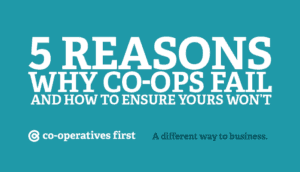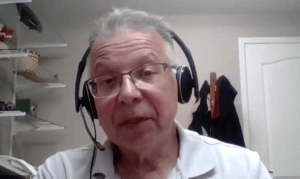JOHN WOODS / WINNIPEG FREE PRESS
Having a clear set of principles can help a business make decisions that are in line with its goals and values. But every group and every business is unique, and there’s no one-size-fits-all set of principles that applies to everyone.
For Indigenous businesses, this is especially true – they might be trying to create guidelines for their business that also reflect their specific outlook and culture.
So here’s the story of one Indigenous co-operative that got it right when it came to creating and living by their principles – so much so that after the business closed, their principles live on.
The Neechi Foods Co-operative
The Neechi Foods worker co-op opened in 1990. The Winnipeg grocery store and catering business brought goods to a neighbourhood that lacked them and provided a place to buy culturally relevant food.
While creating the business, which existed until 2018, the founders also created 11 principles to guide it.
Though Neechi Foods is now (sadly) gone, its legacy lives on in the “Neechi Principles”. The Government of Manitoba has based its own Community Economic Development framework on the ones developed by this Indigenous co-op. And a recent report by James Thunder and Mark Intertas uses them to illustrate how co-ops can “Indigenize” by building their own values into their business and meeting the needs of Indigenous members.
The Neechi Principles
So what are these principles, and how do they help shape a business? They are:
- Use locally produced goods and services
- Produce goods and services for local use
- Re-invest profits locally
- Employ local residents, long-term
- Develop the skills of local people
- Make decisions locally
- Public health
- Physical environment
- Neighbourhood stability
- Human dignity
- Support for other CED initiatives
For Thunder, these principles are the result of a co-op being Indigenized by the people who built it — by defining for themselves what a business should look like. They now form a roadmap for others to adopt — and adapt — their own principles and pathway.
“[These principles are] a way of celebrating culture, and communicating your culture and reinvigorating your culture,” Thunder said. “When you have something fundamentally as important as defining principles, then it becomes really important to ensure that these reflect your culture, and they’re uniquely your own.”
What’s “Indigenization” and how do you do it?
Okay, so what does it mean to Indigenize a business? It’s really about people creating their own vision.
“When we’re talking about Indigenizing the co-operative model, a good question to think about is, ‘Well, who’s doing the Indigenizing?’ Naturally, it’s Indigenous peoples themselves,” Thunder said.
“Indigenizing can mean redefining the purposes and principles of that co-operative as you create it together,” Thunder said. “What are the purposes and principles that govern how your co-operative is going to be run?”.
Creating your own principles
Any business can create its own principles. Important cultural values or ideas can and should be foundational for a co-op — and can influence things like bylaws, policies, human resource methods, workplace culture and more.
Thunder says it’s important that these are clear, few in number, and easy to communicate both inside and outside the business. He highlighted three key practices that can help you identify the principles you want your business to follow, especially if your goal is to Indigenize:
-
Identify your community’s context
“First of all, is just to be really aware of your context, your colonial context. And sometimes we take something that is colonial in origin, and don’t recognize that it is colonial in origin,” Thunder said. “And a good example that I gave in the First Nation context is the origin of our Chief and Council system. Current generations may not know that this is not our way, you know, this was imposed upon us...Step one is just to take a real analysis of your context and figure out what is going on, what is truly yours.”
-
Identify a leader
“Second thing is, every co-operative will require a leader. And that leader doesn’t fit higher on the hierarchy. You need to have that central person who is going to put things together and organize things to get the things going — you know, start the fire. It becomes important for that leader to have this [understanding of values] as well.”
-
Learn, unlearn, and learn again
“Constantly learn, constantly reevaluate — that’s good advice for any entity or organization. It’s like the continuous improvement model… Look at your [key performance indicators]. Look at your impact you’re having on your community. Is your organization achieving the goals that you want it to do? And are you preserving your culture, or not? Evaluate, and make changes.”

 Written by
Written by 



